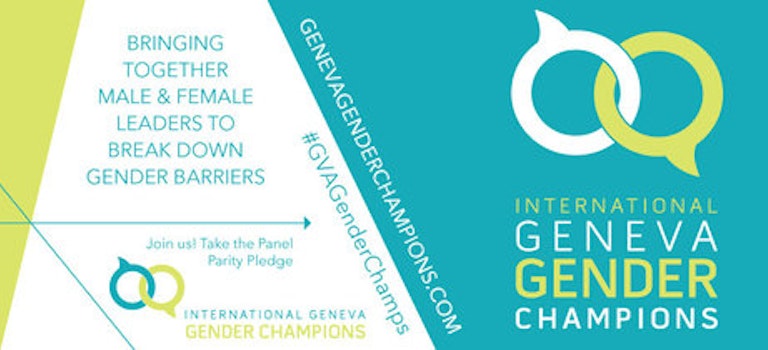We are so proud of our Geneva Gender Champions and their s.m.a.r.t. commitments over the next year, and the years ahead as we seek to make systemic change both in the global work of International Geneva and in our home offices.
International Geneva is uniquely placed for Gender Champion work as it is home to a strategic resource of global policy makers, international organizations, and civil society that will be responsible for the large part of the work implementing theSustainable Development Goals (SDGs) embraced by the UN General Assembly in September which set the global agenda to 2030.
International Geneva is home to the United Nations Office in Geneva; Ambassadors from every country; the International Organizations themselves from the WHO to ILO, WIPO to UNHCR and many unheralded others; decision makers; policy makers; negotiators; diplomats; the business community; academics; thinkers; and especially leading members of civil society from all disciplines that together comprise the interdependent pieces of society that make us vibrant and thrive. We are proud that Geneva Gender Champions has a tri-partite structure driven by three equal partners of the United Nations Office in Geneva, led by a visionary Director General Michael Møller, the Ambassadors led by U.S. Ambassador Pamela Hamamoto, and civil society led by Women@TheTable.
Women@TheTable were particularly encouraged by the work of the Australian Male Champions of Change , UN Women’s HeForShe initiative, and the work of Catalyst, and McKinsey. World Bank Research called into question the notion that economic growth alone increases gender equality, saying “continuous policy commitments to gender equality might be required to achieve it” estimating “that eliminating barriers discriminating against women ... could increase labor productivity by as much as 25% in some economies.”
Opinion pieces from Foreign Policy to the Washington Post included the incredible stat that in 2014, “six leading Washington think tanks presented more than 150 events on the Middle East that included not a single woman speaker. Fewer than one-quarter of all the speakers at the 232 events at those think tanks...were women.” We wanted to ask what we as a community could do about this lower visibility of women and the lower impact it created, and how to harness the research, good will, burning necessity, and Zeitgeist to focus on the question in a way that might truly move the needle for change.
In March, Ambassador Hamamoto joined us at the table as we launched our first joint Women@TheTable & Future She Deserves Salon at the US Mission, engaged in a Catalytic Questioning exercise and discussion with 60 colleagues from Missions, International Organizations, and Civil Society and asked: How do we galvanize the voices of women from the grassroots to International Geneva so that their unique points of view are included, and acted upon in the corridors of power? We seeded the idea of dynamic and influential women and men working together as a united network to tackle the obstacles impeding gender equality.
The United Nations Office in Geneva, and its bold Director General Michael Møller fully embraced the idea spearheaded by Charlotte Warakaulle, Director of the UN Library, for the UN Office in Geneva to get 100% behind the creation and serious institutional support of Geneva Gender Champions.
The heart and soul of our group commitment became the Geneva Gender Panel Parity Pledge in which each of our Gender Champions promises to have both genders represented on any panel on which they participate. An integral part of the Pledge is that any Champion must have a list of dynamic knowledgeable (brilliant!) people of the opposite sex who can speak eloquently to the panel themes; making the Champions themselves champions for others as well as for change. The network was launched July 1 at the Palais des Nations.
But the Champions are also so much more! At the beginning of this month, Secretaries-General and High Commissioners, Ambassadors, and agency Directors from 60 Geneva based organizations stated their two other commitments relevant to their institutional work this year ranging from: Advocacy in favor of women’s rights in multilateral discussions; to Implementation of measurable gender targets for staffing, delegation composition and procurement; to Establishment of norms that prevent unconscious discrimination against employees who provide care for others (e.g. avoid calling for meetings in the early morning or evening).
We want to create an inclusive movement for change in our own backyard.
We salute our Champions! And can’t wait for the next phase on 1 December when we open up to civil society in Geneva and continue to work for an inclusive dynamic environment that holds gender equality at the core of our work.
